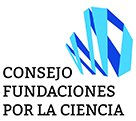For the second time in history, the Foundation Esteve Research Award has finally been granted to two works. The international jury grants this award every two years, and considered these works to be the two best pharmacology research articles published by Spanish authors. The award, which has a prize of 18,000 euros, will be shared between Centro de Biotecnología Animal y Terapia Génica(Animal Biotechnological and Gene Therapy Centre) of the Universitat Autònoma de Barcelona, directed by Fátima Bosch, and the Laboratorio de Neurofarmacología (Neuropharmacology Laboratory)Rafael Maldonado of Universitat Pompeu Fabra.
The first of the winning works, published in 2013 by Fátima Bosch’s team in Journal of Clinical Investigation, describes a gene therapy treatment, which has been able to cure Sanfilippo type A Syndrome in animal models. This is a rare disease that affects between one and nine of every 100.000 children. It is a neurodegenerative disease caused by gene mutation that codes by the sulfamidase enzyme, which causes mental retardation, aggression, hyperactivity, sleep disorders, loss of speech and motor coordination. Children born with this mutation are diagnosed from the age of 4 or 5 and their life-span lasts until their teens.
The ex aequo research awarded by the Esteve Foundation, has developed a gene therapy treatment that cures this disease in animal models, with preclinical studies in mice and dogs. The treatment consists of a single surgical operation, in which an adeno-associated viral vector is inserted in the cerebro spinal fluid that surrounds the brain and the spinal cord. The virus, which is completely innocuous, genetically modifies the brain and medulla cells, in order for sulfamidase to occur. It is distributed to other parts of the body such as the liver, where the production of the enzyme is also induced. As a result of this operation, the behaviour of the animal returns to normality, and its life expectancy is extended to normal levels.
The work Whole body correction of mucopolysaccharidosis IIIA by intracerebrospinal fluid gene therapy, by Virginia Haurigot and Sara Marcó as primary authors, opens a new channel to develop gene therapy products for the treatment of other rare neurodegenerative diseases.
The other winner of the Fundación Esteve Award also went to the research of rare diseases, in this case fragile X chromosome syndrome (FXS). This is the most common hereditary form of intellectual disability and autism. The UPF Neuropharmacology Laboratory, directed by Rafael Maldonado, receives this scientific award for the second time. On this occasion it is for demonstrating that the endocannabinoid system is a new therapeutic target of great interest in the treatment of this disease. This breakthrough was published in the prestigious journal Nature Medicine in 2013.
FXS is the result of the expansion in the FMR1 gene promoter, which causes silencing and loss of the FMPR protein (fragile X mental retardation protein). Patients with FXS have different degrees of intellectual capacity, attention deficit, anxiety, self-injurious behaviour, macroorchidism, facial anomalies and a greater incidence of seizures. The disease affects one out of every 4,000 males and one out of every 6,000-8,000 females.
The research Targeting the endocannabinoid system in the treatment of fragile X syndrome, by Arnau Busquets as primary author, has reproduced many of the FXS symptoms in humans, and demonstrates that cannabinoid receptors play a key role in the physiotherapy of the diesease.The present lack of treatment for this disease increases the interest to be able to validate the relevance of this new therapeutic strategy in the immediate future.
The jury of the Esteve Foundation Research Award would also like to highlight with an honorary mention the article Critical role of the death receptor pathway in the antitumoral effects induced by hispanolone derivatives, which was published in 2012 in the journal Oncogene by the team directed by Beatriz de las Heras (Department of Pharmacy, Universidad Complutense de Madrid) and Sonsoles Hortelano (Inflammation and Cancer Centre, National Centre of Microbiology).
The Fundación Esteve Research Award will be given on 23 June at 1 pm in a joint ceremony which will be held at the Veterinary Department of Universitat Autònoma de Barcelona to be attended by the winning authors and the directors of their respective centres (See programme of the ceremony below).
This is the fourteenth edition of the Award, which is granted every two years to the best pharmacology research work, published by a Spanish author in a scientific journal in the previous two years, on any aspect (design, synthesis, development pharmaceutics, clinical or laboratory evaluation, use, etcetera).
AWARD CEREMONY
The Esteve Foundation will give its fourteenth Research Award on 23 June at 1 pm at the Salón de Grados of the Veterinary Department of Universitat Autònoma de Barcelona (Edificio V. Travessera dels Turons 08193 Bellaterra, Cerdanyola del Vallès).
To attend the ceremony, please confirm beforehand by email fundacion@esteve.org or on 93 433 53 20.
The award ceremony will include the following presentations:
1 pm – Institutional introduction to the Vice Rectorate of Research of the UAB.
1.15 pm – Presentation of the Esteve Foundation by its director, Fèlix Bosch.
1.30 pm – Summary of the first winning article, by three of its authors:Virginia Haurigot and Sara Marcó, primary authors of the work, and Fàtima Bosch, director of the Animal Biotechnology and Gene Therapy Centre of the UAB.
1.45 pm – Summary of the second winning article, by Arnau Busquets, primary author of the work, and Rafael Maldonado, director of the Neuropharmacology Laboratory of Universitat Pompeu Fabra.

